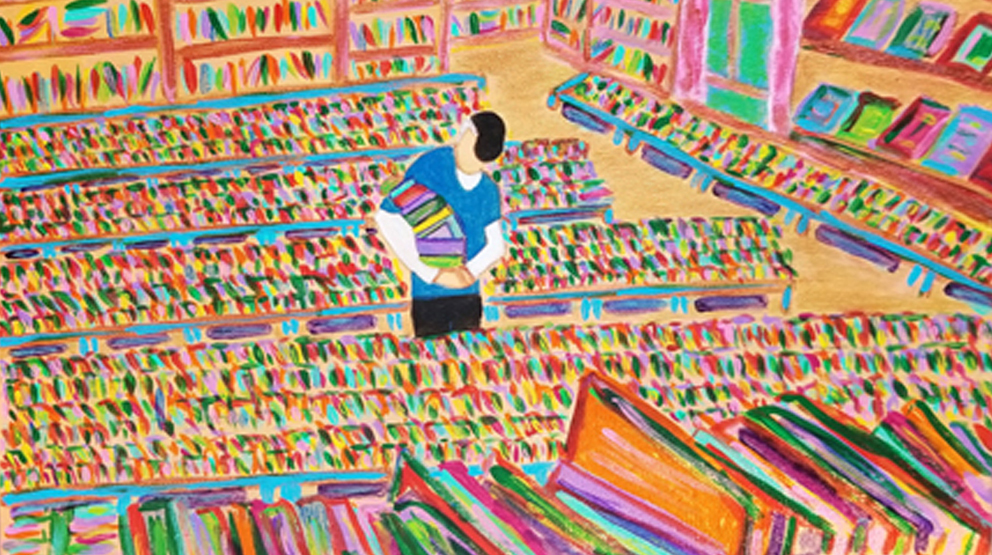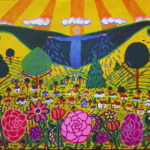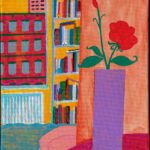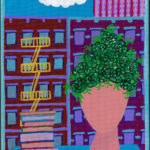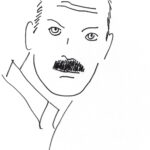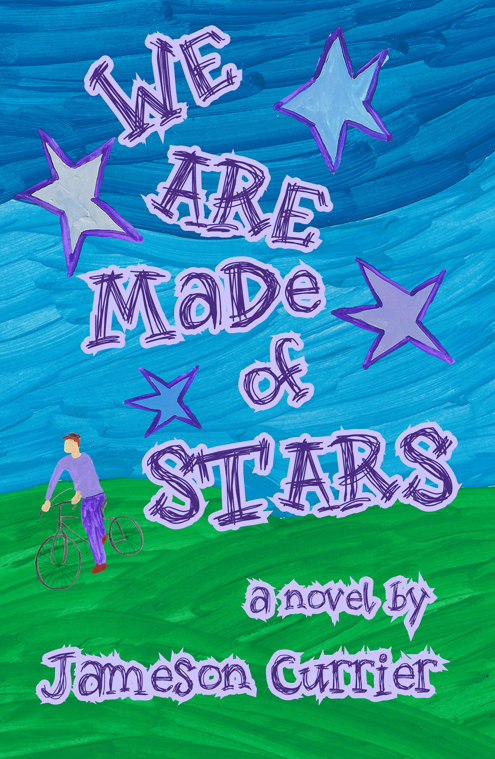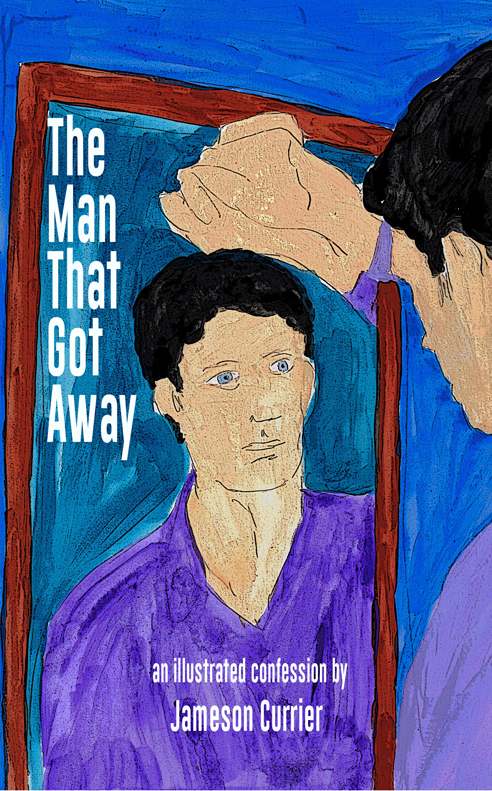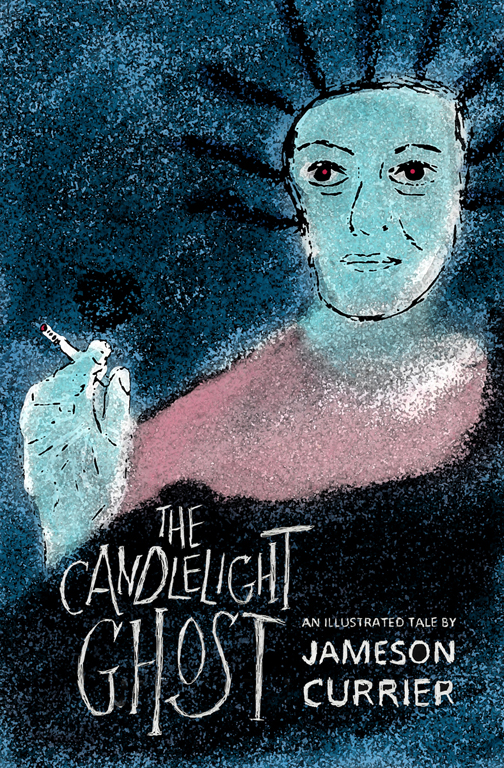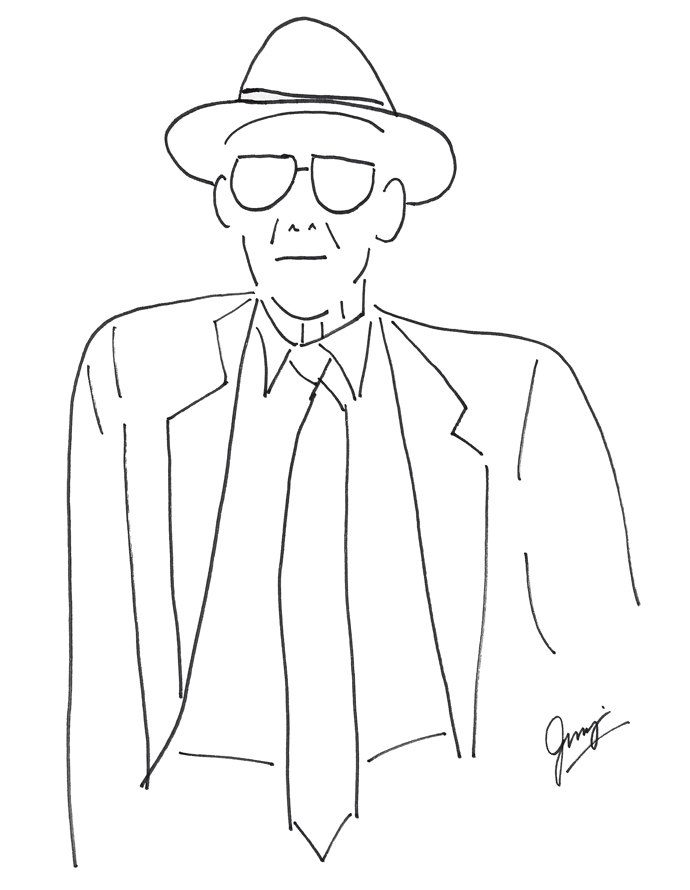
sketch of William Burroughs
by Jameson Currier
ink on paper
20250107003
On Burroughs
Review by Jameson Currier
One indicator of a writer’s achievement can be measured by his influence on other writers. William Burroughs, for instance, author of Naked Lunch and The Western Lands and a major figure in the Beat Movement, has influenced generations of young writers with his rapid fire, disjointed style of prose. In his first novel, Junky (written under the name of William Lee), and in the subsequent and controversial Naked Lunch, Burroughs graphically portrayed the gruesome and surreal world of the drug addict, the details of which were culled from his own experiences as an addict for fifteen years. Naked Lunch has been cited as such a major influence by so many writers that Burroughs is often credited as the godfather of every cultural youth movement which has sprung up since the 1950s, from Beat to Punk to Grunge.
In My Education, Burroughs’ first novel in seven years, the author is again his central character, revisiting the landscapes and populace of hundreds of his dreams, a place “where I get my best sets and characters.” Dreams have always been a rich source of characters and ideas for Burroughs’ fiction and several types reoccur within this novel, from “flying” ones to “packing” ones, to “breakfast dreams” about “difficulty in obtaining any sort of food.” Family, friends and celebrities from Burroughs’ past make appearances throughout these dreams, among them Mick Jagger, Jean Genet, L. Ron Hubbard, Paul Bowles, Allen Ginsburg, and Jack Kerouac. Locales are varied, from Manhattan to Panama, and Ancient Rome to the planet Venus.
“No experience is ever lost on a writer,” Burroughs notes, and many images reoccur throughout these dreams — cats, pale young men, aliens, and varying doctors — though Burroughs fails to infuse them with any metaphorical meaning, thus bequeathing a tediousness to this terrain.
Several graphic scenes haunt this plotless book, however: a woman with uncontrollable diarrhea, a lake of urine, a man’s face bloodied by a broken bottle. Those familiar with the Burroughs canon will notice that the author’s disjointed prose still remains, but the satire has been replaced by a more plaintive voice. “Am I an alien?” Burroughs writes in the opening pages. “Alien from what exactly? Perhaps my home is the dream city, more real than my so-called waking life precisely because it has no relation to waking life.”
The strength of this memoir-like story comes from its 72 year-old narrator’s struggles with grief, having outlived many of the people and events he so vividly recalls. “I have been suffering from paralyzing depressions,” he says. “Remembering brings the emptiness, the acutely painful awareness of irreparable loss.”
My Education
by William S. Burroughs
(Viking, 1995)
_____
This review was published as “Sadness Haunts Burroughs’ Book of Dreams,” St. Louis Post-Dispatch, Sunday, January 22, 1995, and as “The Long Look Back,” Harvard Gay and Lesbian Review, Winter 1995.
